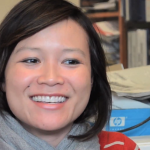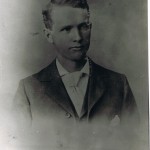When Mark Twain visited Yale in 1885 to lecture, Warner T. McGuinn, one of the first African-American students at Yale Law School, served as his campus guide and introduced him at a public meeting. Impressed by McGuinn, Twain quietly arranged with Francis Wayland, the law school’s dean, to cover McGuinn’s expenses at Yale, permitting him to stop waiting tables, collecting students’ bills and hat checking.
Twain wrote to Dean Wayland: “I do not believe I would very cheerfully help a white student who would ask a benevolence of a stranger, but I do not feel so about the other color. We have ground the manhood out of them & the shame is ours, not theirs, & we should pay for it.”
McGuinn not only was elected president of the Law Club and won the law school’s oratory prize at the Yale commencement in 1887 but he also had a distinguished law career in Baltimore. He served two terms on the City Council, represented the Afro-American, supported women’s suffrage, argued cases against local segregation ordinances and mentored Thurgood Marshall, the first African-American justice of the U.S. Supreme Court.
Given the makeup of the current Supreme Court and the likelihood that it would declare a university’s race-based affirmative action unconstitutional Dan Tham video interviewed Robert C. Post, the current dean of Yale Law School and a constitutional law scholar, about the law school’s efforts to encourage a diverse student body.
Loren
Video by Dan























